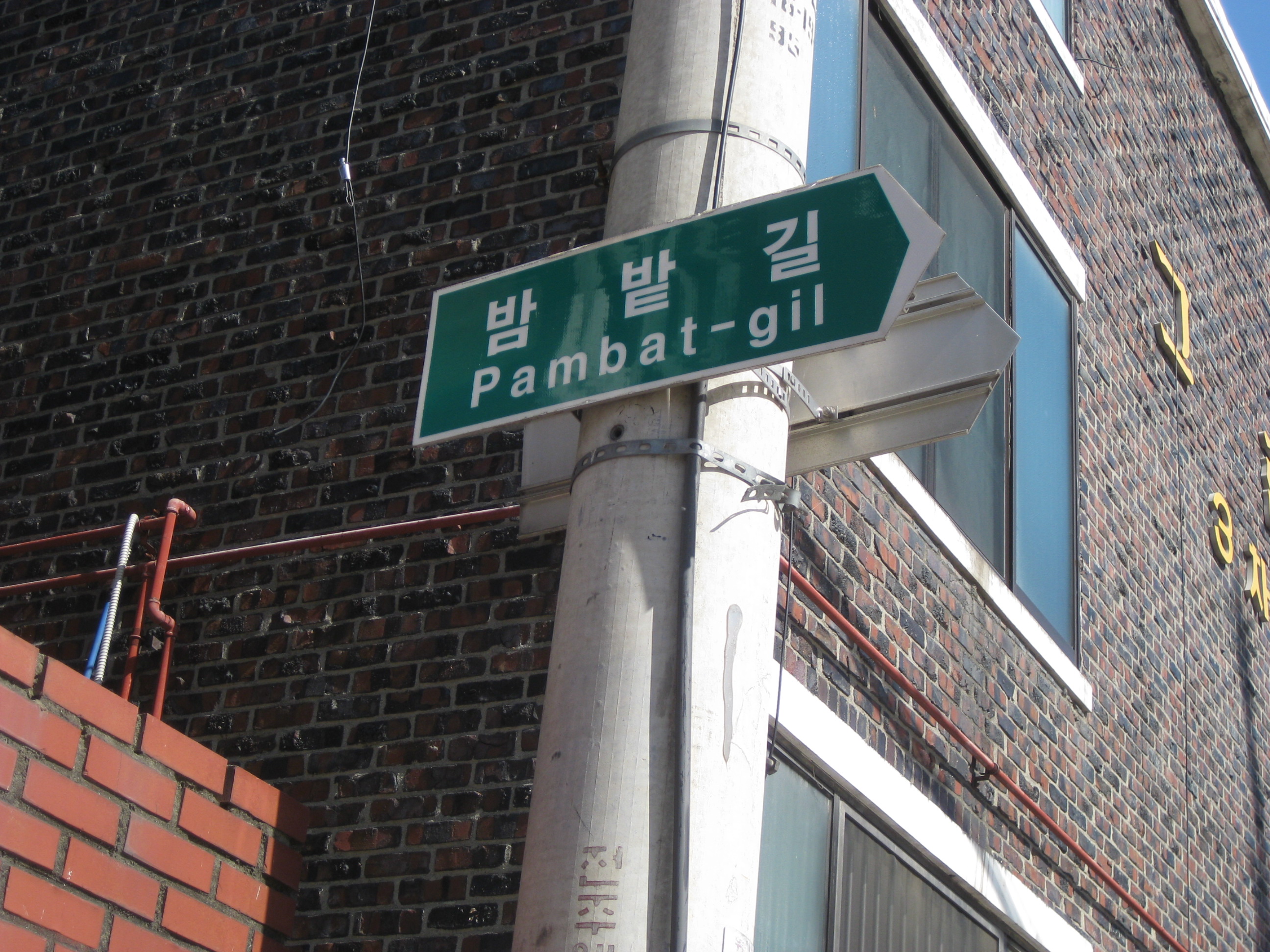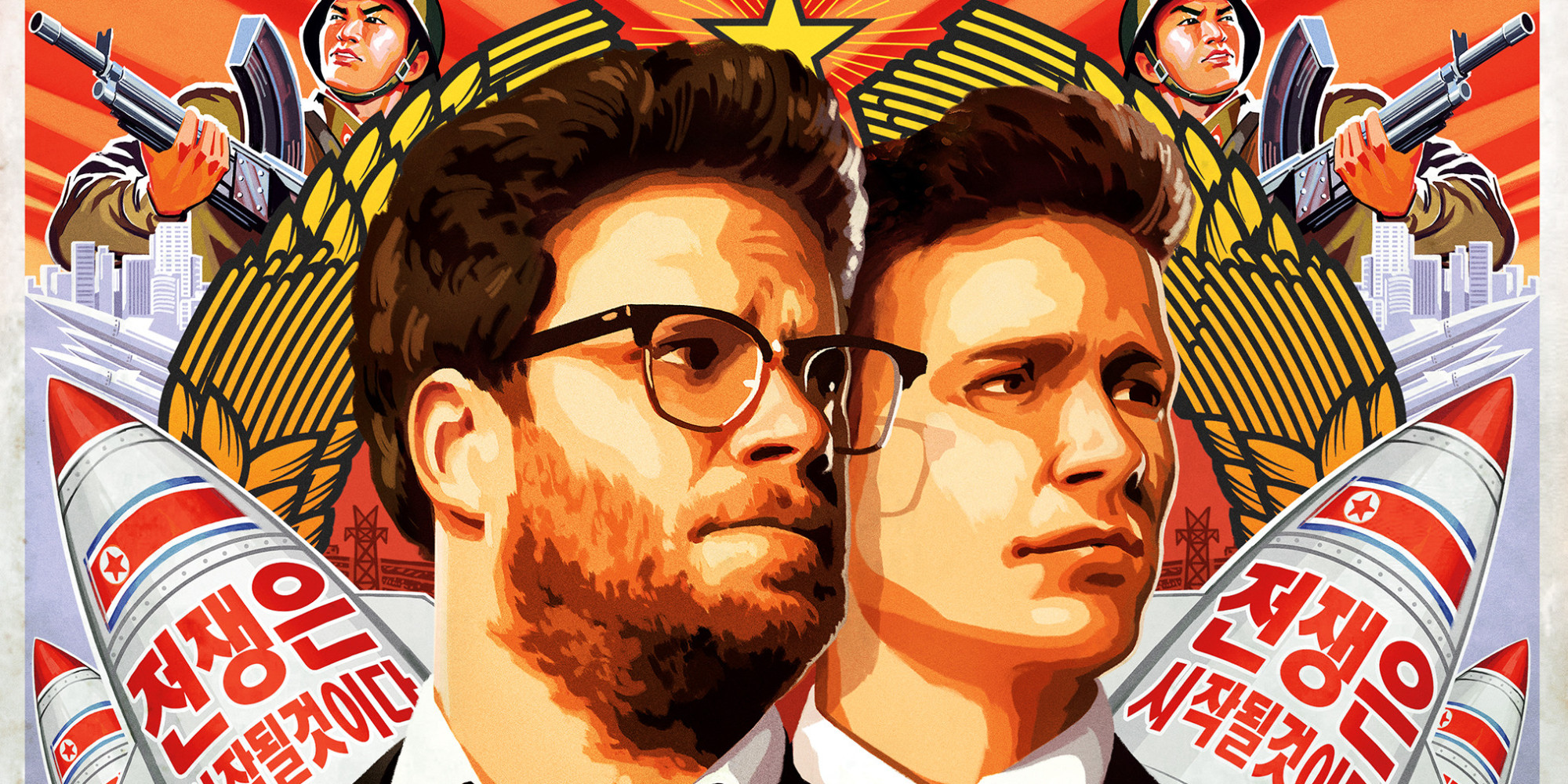People know I’m into Korean things, so they’re asking me what I think about The Interview, the hacking of Sony Pictures Entertainment, and the subsequent pulling of the film from theaters.
1. The quality of the film is irrelevant
This point seems to confuse a lot of people, who are busy debating whether the film is The Great Dictator. As part of that debate, some are pointing out that The Interview is “a bad film.” This is kind of unfair considering that no one has seen it. But more importantly, it’s utterly irrelevant. So what if it’s terrible? Sony didn’t get hacked because the movie was good or bad, and the movie didn’t get pulled from theaters based on its quality. In geopolitical and ethical terms, the quality of the movie is a non-issue.
2. It’s OK to make a movie about assassinating a sitting head of state
It might or might not be in poor taste, depending on your taste. But it’s not wrong. Hollywood produces and distributes movies on every conceivable topic, glorifying all kinds of horrific violence, depicting the destruction of the United States, and on and on. One of the great classics of American cinema is about our own government plotting to bring about global nuclear armageddon. The Interview might be a lot of things, but incitement it is not, and it falls easily into the realm of speech that’s protected.
3. It’s OK to make fun of North Korea
Again, you might or might not find it to be in poor taste. But it’s OK to make a movie that makes fun of Hitler (cf. The Great Dictator, The Producers) or a comedy set in the Holocaust (Life Is Beautiful), or even a film that makes fun of a Kim who rules North Korea (Team America). The Atlantic gets it completely wrong in saying that North Korea isn’t funny. North Korea is hilarious, as dictatorships usually are, and one of the best weapons against them is humor.
North Korea’s leaders have been the butt of jokes on SNL, 30 Rock, in Team America, and elsewhere because they’re self-important buffoons. They should be lampooned. Dictators everywhere should be lampooned. Democratic leaders should also be lampooned. Making fun of the people in charge is important work.
4. Seth Rogen and James Franco are acting courageously
And as for that Atlantic article insisting that the film is “not an act of courage” like The Great Dictator because Hitler was at the height of his powers and North Korea is weak? Declaring that “it takes no valor and costs precious little to joke about these things safely oceans away from North Korea’s reach”? Well, it appears that North Korea has been able to hit Seth Rogen and his backers harder than Hitler ever hit Charlie Chaplin and his backers. North Korea has been known to assassinate people it doesn’t like, and quite famously kidnapped and enslaved a couple of South Korean movie people when they were in Hong Kong.
No, North Korea appears not to have gone after Trey Parker or Margaret Cho. But they might have. And they have gone after Rogen and Franco.
5. Sony and the film distributors aren’t cowards
Sony Pictures got hit really hard. Nobody died, so this isn’t the sort of thing where we ought to respond with missile strikes. But their business was paralyzed. And Sony Pictures is a business. And businesses are not moral human beings who take a stand. There is no Martin Luther King, Jr., Inc. Businesses are risk-averse organizations with a profit motive. None of these companies want to risk their holiday-season profits, and none of them want to risk being involved in the actual violence that’s been threatened.
Nor does Sony Pictures have the sense that the US government has their back. This form of cyberterrorism is new, and the US doesn’t know what to do about it exactly. We can’t call in the National Guard and ground all the planes. Sony Pictures is kind of on its own right now, and that’s not a comfortable place to be. I don’t blame them for not wanting to go to war with North Korea over Christmas.
6. We still don’t know whether it really was North Korea
Don’t forget that. These sort of attacks are hard to pin down. It might be a disgruntled former employee. We just don’t know.
7. Isolating North Korea’s economy is not the answer
The other bit of important news this week — way more important than this whole Interview situation — is America’s at-long-last opening with Cuba. We’ve been maintaining a policy of isolation for decades, and it has failed to topple the government of Cuba, resolve human rights issues there, or really serve our interests in any useful way.
So what do we want to do in response to North Korea’s hack attack? Cut off their dollars.
Corporations, as I said, are risk-averse. They don’t like wars or conflicts because they’re hard to predict in quarterly estimates. North Korea is free to be belligerent because it doesn’t have influential corporations. But there is business in North Korea, much of it controlled by the military. Rather than further isolating and limiting that business, it might make more sense to engage with it, embedding it in the global system that makes war unthinkable between any two major economic powers. If North Korean leadership had something significant to lose beyond their own borders, they might be more hesitant to threaten and attack. The way that happens most effectively in today’s world is through international trade.
North Korea doesn’t make that easy, but it may be the best bet for creating a class of influencers in North Korea who have an ownership stake in something significant and who will press within the system for a more moderate approach to the outside world.
Update: President Obama has now confirmed that North Korea is behind the hacking and said that he thinks Sony Pictures made a mistake in pulling the release of The Interview, though he is sympathetic. Sony Pictures responded, putting the blame on the theater distributors and claiming that they are still looking into ways to release the movie.




